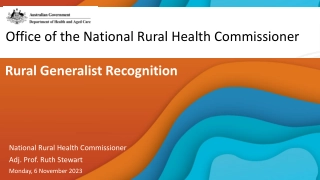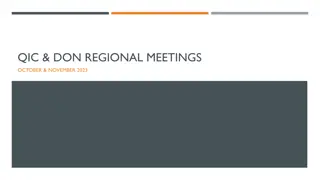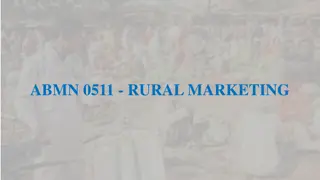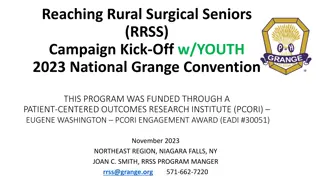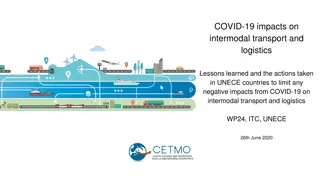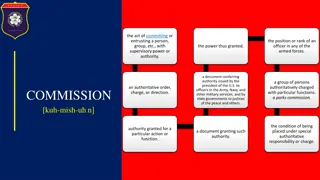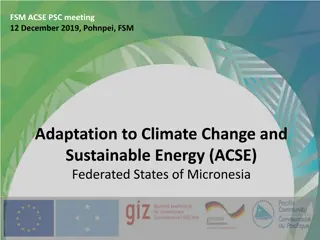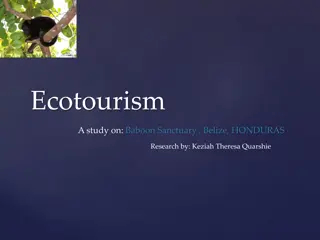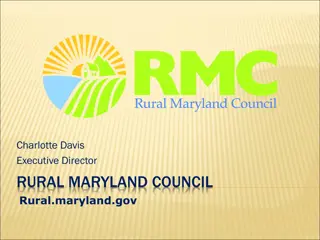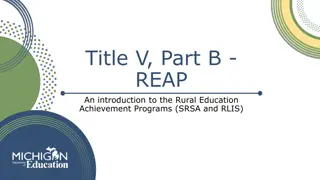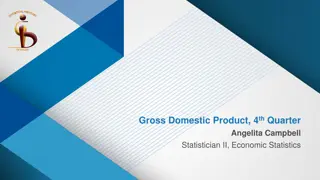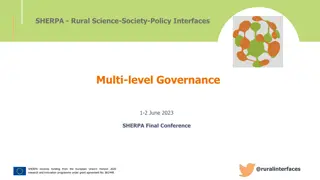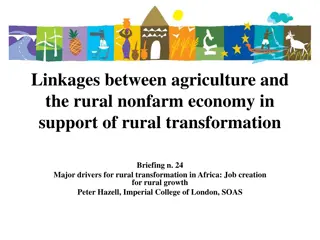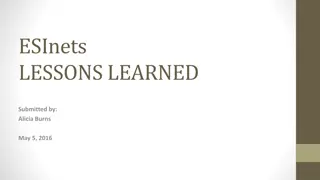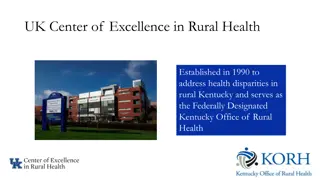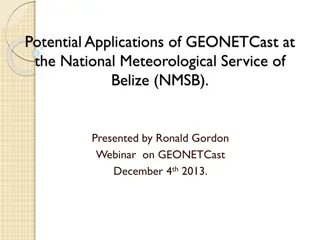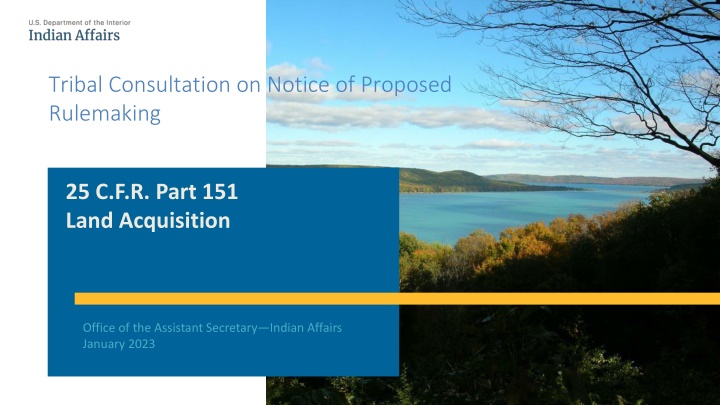
Lessons Learned from Rural Resilient Belize Project
The Rural Resilient Belize project aims to improve the resilience of poor rural households by supporting climate-resilient practices and enhancing agriculture production. Key lessons learned include the importance of incorporating Indigenous contexts, building capacity, and going beyond FPIC obligations. Recommendations focus on advocating for Indigenous communities and supporting their future-making efforts.
Download Presentation

Please find below an Image/Link to download the presentation.
The content on the website is provided AS IS for your information and personal use only. It may not be sold, licensed, or shared on other websites without obtaining consent from the author. If you encounter any issues during the download, it is possible that the publisher has removed the file from their server.
You are allowed to download the files provided on this website for personal or commercial use, subject to the condition that they are used lawfully. All files are the property of their respective owners.
The content on the website is provided AS IS for your information and personal use only. It may not be sold, licensed, or shared on other websites without obtaining consent from the author.
E N D
Presentation Transcript
Tribal Consultation on Notice of Proposed Rulemaking 25 C.F.R. Part 151 Land Acquisition Office of the Assistant Secretary Indian Affairs January 2023
Consultation Schedule Fri, Jan 13, 2023 9:00 AM - 12:00 PM Mountain (DST) (In-Person) Thu, Jan 19, 2023 1:00 PM - 4:00 PM Eastern (Virtual) Mon, Jan 30, 2023 2:00 PM - 5:00 PM Eastern (Virtual) Written comments are due by 11:59 p.m. Eastern Time on Wednesday, March 1, 2023 to consultation@bia.gov 2
25 C.F.R. Part 151 25 C.F.R. Part 151 - - Land Acquisition Land Acquisition The NPRM proposes the following changes: o Codify standards that implement the 2009 decision in Carcieri v. Salazar to increase clarity and certainty in determining the Secretary s authority to take land in trust for Tribes. See 151.4. o Reduce processing time and uncertainty by identifying the documents needed for a complete application, after which the BIA will issue a decision within 120 days. See 151.8. o Articulate a clear land acquisition policy to strengthen self-determination and sovereignty, ensure that every Tribe has protected homelands where its citizens can maintain their Tribal existence and way of life, and consolidate land ownership to strengthen Tribal governance over reservation lands and reduce checkerboarding. See 151.3. o Establish clear criteria by requiring that great weight be given to establishing a Tribal land base or protecting Tribal homelands, protecting sacred sites or cultural resources and practices, establishing or maintaining conservation or environmental mitigation areas, consolidating land ownership, reducing checkerboarding, acquiring land lost through allotment, protecting treaty or subsistence rights, or facilitating Tribal self-determination, economic development, Indian housing. See 151.9 12. 3
25 C.F.R. Part 151 25 C.F.R. Part 151 - - Land Acquisition Land Acquisition o Increase efficiency by analyzing applications as either on-reservation, contiguous to a reservation, an initial acquisition for landless Tribes, or off-reservation, recognizing that each category requires specific criteria for an appropriate analysis. See 151.9 12. o Establish clear criteria that presume on-reservation, contiguous, and initial acquisitions for landless Tribes will be approved and that Tribal communities will benefit from proposed acquisitions without regard to distance from their reservation. See 151.9 10, 12. o Consider the concerns of state and local governments by notifying them and requesting comments on regulatory jurisdiction and real property taxes, except that no comments will be requested for on- reservation acquisitions because they are likely to have very few or no impacts on these governments. See 15.10 12. o Reduce expense by clarifying when environmental studies and reports are to be updated, thus, eliminating the need for repeated updates. See 151.15. Please raise your hand if you would like to speak. Please enter your question or comment in the Zoom chat box. 4
Next Steps Written comments are due by 11:59 p.m. Eastern Time on March 1, 2023, to consultation@bia.gov Register for upcoming virtual consultations here: https://www.bia.gov/service/tribal- consultations/nprm-25-cfr-151-land- acquisitions-and-25-cfr-293-class-iii-tribal If you have questions regarding this effort, please contact Maria Wiseman, Senior Policy Advisor for Climate and the Environment, at (202) 208-7227 or via email: maria.wiseman@bia.gov 5

